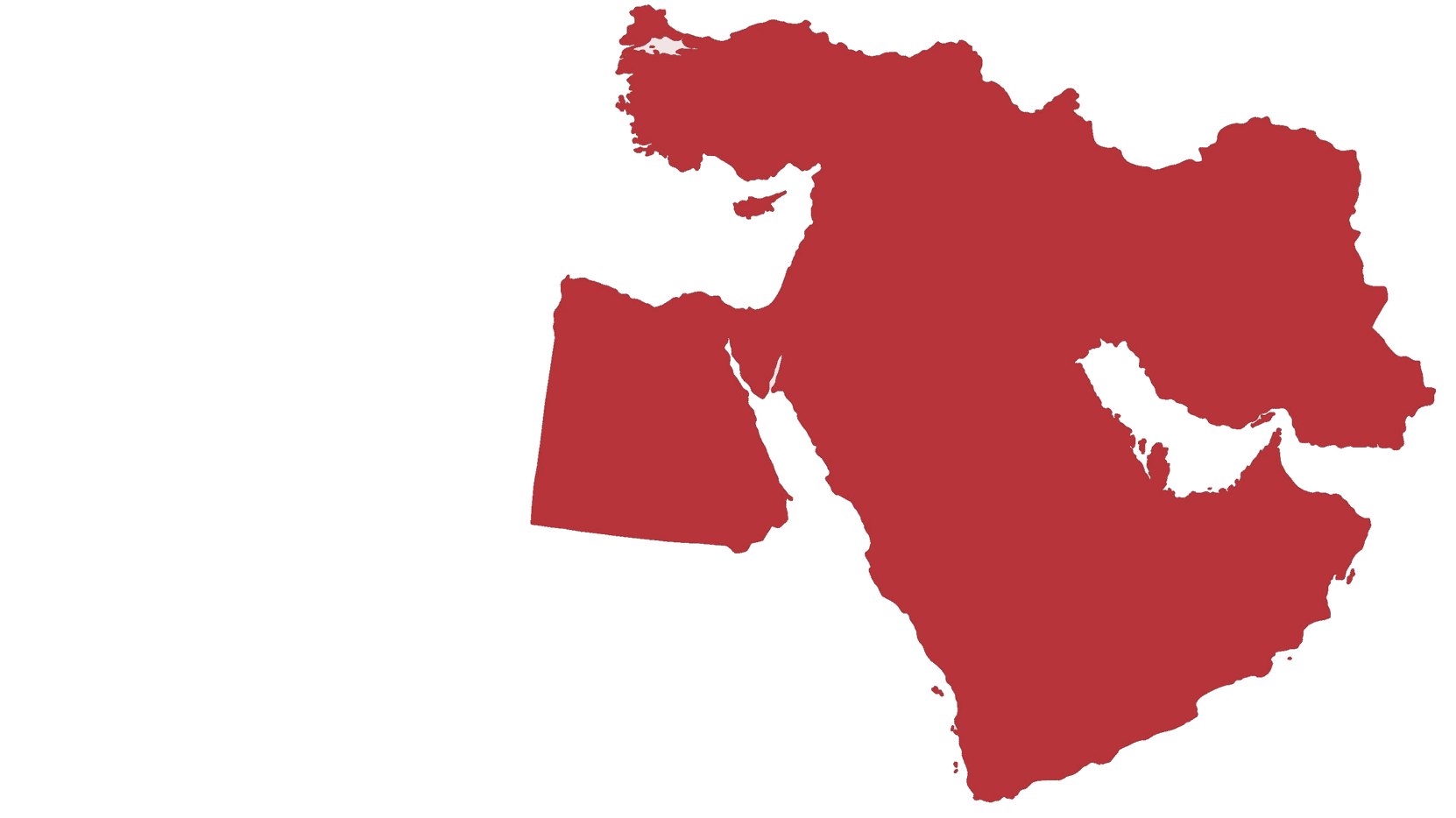MIDDLE EAST

Estimates suggest that there are more than 60 languages spoken in the Middle East.
The Middle East is a region with great linguistic diversity. The most widely spoken languages in the Middle East include Arabic, Persian (Farsi), Turkish, Hebrew, Kurdish, Armenian, and Azeri. Arabic is the official language in most countries of the Middle East and is spoken by around 420 million people worldwide. Persian is spoken in Iran, Afghanistan, and Tajikistan, while Turkish is spoken in Turkey and some parts of Iraq and Iran.
Hebrew is the official language of Israel and is spoken by most Israelis. Kurdish is spoken in Iraq, Iran, Syria, and Turkey, while Armenian is spoken in Armenia and the Nagorno-Karabakh region of Azerbaijan. Azeri is spoken in Azerbaijan and parts of Iran.
Other languages spoken in the region include Assyrian, Syriac, Aramaic, Georgian, and various dialects of Arabic.
LANGUAGE
Assyrian
Kurdish (Bahdini)
Kurdish (Sorani)
Yiddish
GEOGRAPHIC REGION/COUNTRY
South Africa, Namibia, Botswana, Zimbabwe
Ethiopia
Algeria, Chad, Djibouti, Egypt, Libya, Morocco, Sudan, Tunisia
Egypt, Iraq, Israel, Jordan, Kuwait, Libya, Saudi Arabia, UAE,
Iraq, Diaspora communities in the U.S. and Europe
Morocco
Iraq, Syria, Iran (Northwestern), Turkey (Southeastern)
Iran, Afghanistan, Tajikistan, Uzbekistan, Bahrain
Israel, United States, Canada, United Kingdom, Australia
Turkey, Iran, Iraq, Syria, Armenia
Turkey, Iran, Iraq, Syria, Armenia
Lebanon, Syria, Israel, United States, Canada
United States, Israel, Canada, Argentina, United Kingdom
